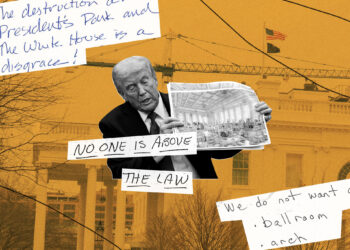GOP Despair Over Rep’s ‘Total Disaster’ Sex Scandal Response
Republicans are grappling with the fallout from Rep. Tony Gonzales’ public comments about his affair with a staffer who later...
Sarah J. Maas announced the next books in the ‘A Court of Thorns and Roses’ series. Here’s everything we know so far.
Sarah J. Maas is publishing the sixth "A Court of Thorns and Roses" book. Alexandra Genova / SAINT LUCY RepresentsSarah...
Olivier Awards: ‘Paddington’ and ‘Into the Woods’ Lead Nominations
“Paddington: The Musical” and a revival of “Into the Woods” on Thursday received the most nominations for this year’s Olivier...
Palantir CEO’s rant about the Anthropic-Pentagon feud threatening his company was about a lot more than a dirty word
AI “seems much worse for the math people than the word people,” Peter Thiel tersely said in 2024. He likely...
Savannah Guthrie Visits ‘Today,’ Plans a Return to Show
NBC said on Thursday that Savannah Guthrie, the longtime “Today” anchor, “plans to return” to the NBC morning franchise at...
‘I did not vote for this’: Thousands of public comments slam Trump’s ballroom
President Donald Trump has spent months touting his planned White House ballroom, but this week the public gets its first...
Britney Spears, ‘celebrity,’ arrested on suspicion of DUI in Ventura County
Britney Spears was arrested Wednesday night in Ventura on suspicion of DUI, according to online records from the Ventura County...
Thousands of public comments slam Trump’s ballroom: ‘I did not vote for this’
President Donald Trump has spent months touting his planned White House ballroom, but this week the public gets its first...
Americans stranded in the Middle East say they’ve had little US government help: ‘I felt betrayed and left out to dry’
Ryan Lim / AFP via Getty ImagesThe US government has told citizens in parts of the Middle East to depart...
A Political Earthquake Rattles the North Carolina Legislature
The American flag cake was about half eaten by the time Phil Berger, North Carolina’s most powerful legislator, stepped to...













